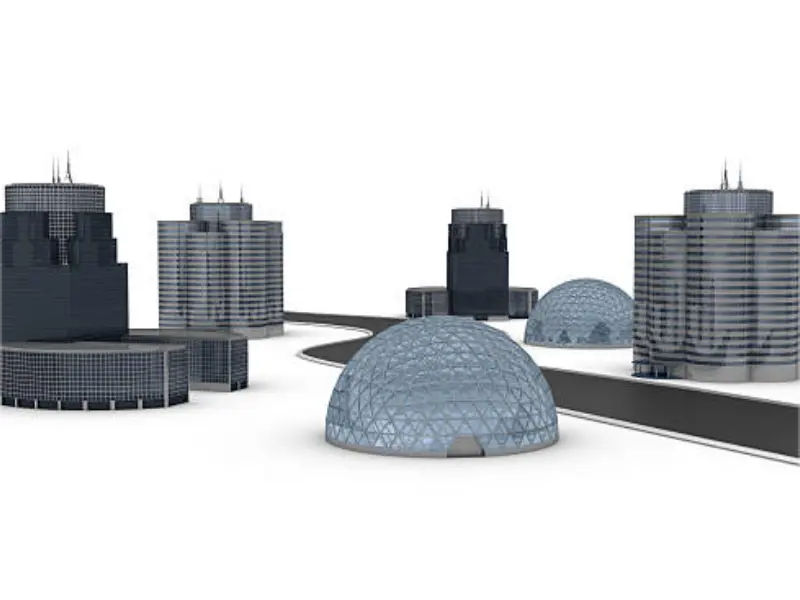- Smart cities optimise urban functions through integrated technology, improving connectivity and resource management.
- They focus on sustainable development, using intelligent energy systems to balance efficiency and environmental protection.
- The adaptability of smart city infrastructures supports a wide range of innovations, from smart healthcare to intelligent mobility solutions.
Smart cities use advanced technologies to optimise infrastructure, energy and services, creating connected environments that improve both sustainability and quality of life for residents. These cities integrate everything from traffic management to energy conservation, using data to make real-time decisions that improve efficiency and reduce environmental impact.
By fostering a vibrant synergy between technology and citizens, smart cities not only enhance urban functionality, but also empower their communities. They drive economic growth through innovation while ensuring that technological advances benefit all residents, creating a model for future urban development that balances progress with sustainability
Smart building
Intelligent buildings in urban environments are evolving to meet the changing needs of the workforce and advances in technology. These buildings serve as hubs that connect people locally and globally, integrating dynamic systems to improve productivity and efficiency.
Safety and security are achieved through multi-layered risk management strategies that include various technological solutions such as surveillance and fire systems. The infrastructure supports high-performance connectivity and the Internet of Things (IoT), enabling real-time environmental adjustments and efficient use of space. These intelligent environments also support flexible working arrangements and BYOD policies, optimising both individual and overall building performance.
Also read: 25 smart home and IoT technologies that might just change your life
Smart infrastructure
In smart cities, the landscape of infrastructure, such as energy systems and buildings, is rapidly evolving. Traditional centralised energy systems are being replaced by sophisticated decentralised systems, transforming buildings from mere energy consumers to active energy contributors.
This shift requires a new approach from city authorities, focusing on the integration of technology and data to improve service delivery, including utilities, housing and connectivity. This adaptive ecosystem aims to meet the diverse needs of residents and promote the sustainable use of resources.
Smart mobility
Managing urban mobility is a complex challenge. While car-sharing and ride-sharing offer new mobility options, they can create problems such as insufficient parking and too many vehicles on the roads, often leading to conflicts with traditional public transport systems.
Cities are exploring advanced solutions such as self-driving vehicles, electric transport and innovative transport systems such as hyperloops to improve the way residents commute and interact with urban spaces.
Beyond public transport, smart mobility includes digital travel booking platforms and integrated systems that use data analytics to optimise the availability and efficiency of transport services.
Smart energy
Smart cities are transforming their energy systems by modernising national grids and decentralising energy assets, promoting the use of electric vehicles and smarter energy infrastructure.
This transformation not only improves efficiency, but also offers economic benefits and supports a more sustainable environment. Smart energy strategies enable significant cost reductions, increase the capacity and resilience of energy systems, and contribute to large-scale decarbonisation efforts.
These initiatives enable the repurposing of existing infrastructure into tradable assets and micro-grids that support energy democratisation and ensure a consistent supply of energy by balancing renewable sources.
Smart technology
Smart cities make extensive use of technology to address the challenges of urbanisation and improve living standards. This includes using urban waste to generate energy and produce fertiliser, minimising waste during the construction and demolition of buildings, and managing scarce water resources in a sustainable way. These technological solutions are an integral part of improving environmental sustainability and quality of life in urban areas.
Also read: Wearable technology: How it makes for a smarter future
Smart healthcare
In smart cities, IoT is revolutionising healthcare by improving the monitoring of patients, medical equipment and staff, reducing operational costs and improving the quality of care.
Home-based healthcare, facilitated by data collection and telemedicine, allows doctors to manage chronic conditions more effectively through real-time remote patient monitoring. Technologies such as augmented reality and virtual reality are being used to train medical students and treat conditions such as PTSD. In addition, AI is improving clinical decision-making and promises future breakthroughs in healthcare.
Smart governance
In smart cities, e-government tools enhance public engagement by delivering government services online through digital devices, making these services more accessible, cost-effective and transparent. This digital approach allows citizens to actively participate in governance by providing feedback through various online channels, fostering a more responsive and accountable governance environment.
Smart citizen
Smart cities rely heavily on the engagement and empowerment of their residents, known as smart citizens. These cities face the challenge of integrating technology into everyday life in a way that residents can use effectively. If citizens are unfamiliar with technologies such as intelligent public transport systems, they may revert to outdated methods. That’s why it’s crucial for city officials to provide comprehensive civic education programmes that not only inform citizens about how to use these technologies, but also involve them in the ongoing development of smart city initiatives.

